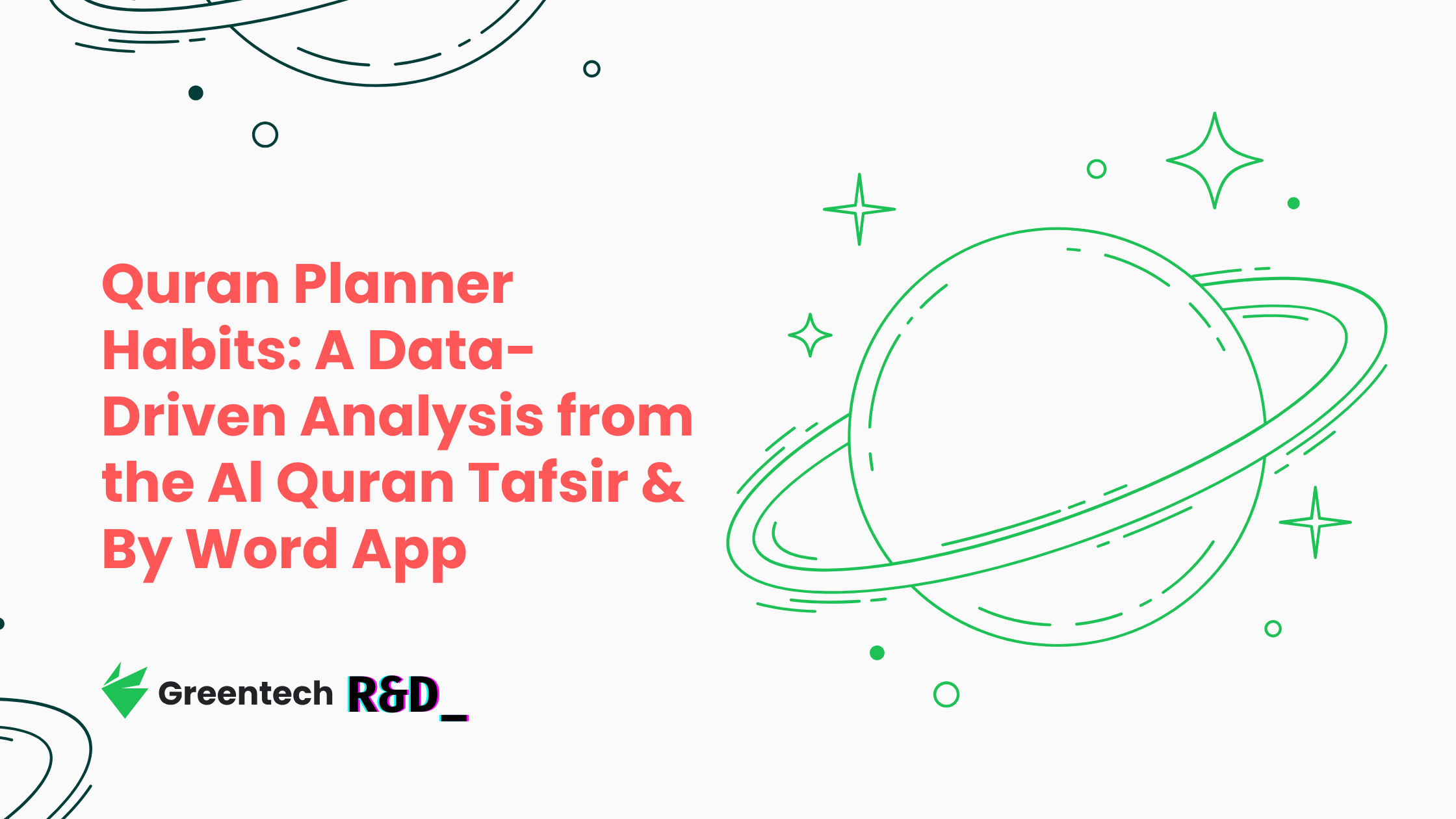Published: 25 March 2025
How do Muslims plan and complete their Quran reading? What helps them stay consistent — and what holds them back? Our latest white paper, “Quran Planner Habits: A Data-Driven Analysis”, dives deep into real user behaviour from the Al Quran (Tafsir & By Word) app.
Drawing on insights from over 35,000 users and more than 50,000 Quran planners, we analysed reading durations, completion rates, surah patterns, and user engagement — all to better understand how digital tools can support meaningful Quran reading.
👉 Read the full white paper (PDF)
📌 Key Findings
- Shorter plans succeed: 8–30 day plans had the highest completion rate (34.8%)
- Half of all plans are never started: The biggest challenge is getting users to begin
- Daily targets matter: Plans with 20–40 verses per day show best results
- Popular surahs: Al-Baqarah, Al-Imran, and Al-Mulk are top choices for short and long planners
- Ramadan boost: Engagement spikes during Ramadan, suggesting opportunity for tailored onboarding
🎯 Design Recommendations
Based on this data, we recommend future Quran planners to:
- Encourage activation through easy onboarding
- Celebrate milestones to reinforce motivation
- Offer goal-based templates (Khatam, Hifz, Tafsir)
- Strengthen reminders to build spiritual habits
🧠 Why This Matters
This white paper is part of our larger R&D effort at Greentech Apps Foundation (GTAF) to create smarter, spiritually meaningful technology for the ummah. As we build the next generation of Islamic tools, these insights help us stay aligned with real-world needs and user behaviour.
📥 Download & Share
This work is freely available under a Creative Commons BY-NC-SA 4.0 License. Please read, share, and cite:
📄 Download the full white paper (PDF)
Authors: Nabil Mosharraf Hossain & Dr Riasat Islam – Greentech Apps Foundation

Leave a Reply